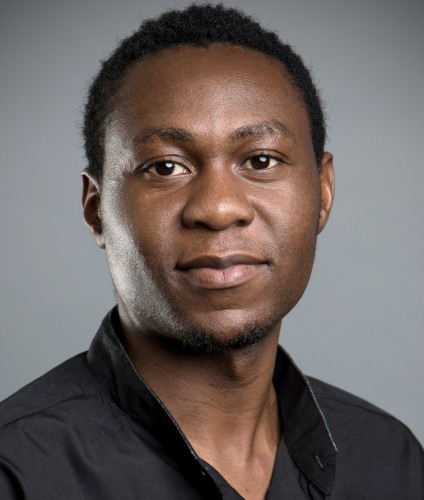
Lloyd Hazvineyi joined Kenyon College in 2025, specializing in African history with a focus on the environmental history of Southern Africa and the role of anti-colonial radio broadcasting across the continent. His research centers on African agency in resisting colonialism, drawing on both archival sources and oral histories to recover voices often absent from dominant narratives.
Before joining Kenyon, he taught at Bard College. Hazvineyi offers a wide array of African History courses, including “Survey of African History,” “Race, Resistance, and Revolution in South Africa,” “Radio and Revolution in Africa” and “Women in African History.”
Areas of Expertise
Environmental history of Southern Africa, histories of radio broadcasting in Africa
Courses Recently Taught
This course is a survey of major events and social changes that occurred on the continent of Africa before 1800, with an emphasis on those that took place after 500. As the continent encompasses hundreds of different societies, each with its own history, this survey is necessarily far from comprehensive, instead focusing on select cases in various regions that illustrate larger trends and issues. Among the main topics are smaller-scale societies, kingdoms that arose in different parts of Africa, the spread of Islam, the arrival of European traders and the impact of the transatlantic slave trade. Recurring themes in the course include state formation, religion, geographic diversity, cultural exchange and the roles of archaeology, linguistics and oral histories in the reconstruction of Africa's early history. This counts toward the premodern and Asia/Africa requirements for the major. No prerequisite. Generally offered every year.
This course examines the history of Africa from 1800 to the present. It employs a range of books, articles, novels and videos to explore 19th-century transformations in Africa, European conquest of the continent, the impact of colonialism, the coming of independence, and recent challenges and achievements in Africa. The influence of Europe on Africa is a dominant theme, but the course emphasizes African perspectives and actions in that troubled relationship. Throughout, we consider issues of resistance, identity and cultural change, paying particular attention to the recent roots of current situations in Africa, such as the democratization of some nations and endemic violence in others. This counts toward the modern and Asia/Africa requirements for the major. No prerequisite. Generally offered every spring.
Special Topic
Special Topic
This course explores major social and political changes that took place in South Africa during the 20th century. From the time of British colonization through the rise and fall of the apartheid state, a variety of competing groups emerged that eventually combined to form the nation of South Africa. That process was accompanied by recurring conflict, but with the end of enforced racial segregation in the 1990s and the introduction of democracy, South Africans have been re-examining their past in search of new narratives that might transcend the legacy of historic divisions. Through study of scholarly works, primary documents, literature and film, this seminar explores the roots of modern South African society and the varying perceptions of that history. This counts toward the modern and Asia/Africa requirements and the colonial/imperial field for the major. No prerequisite. Sophomore standing. Offered every two or three years.